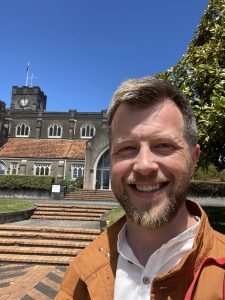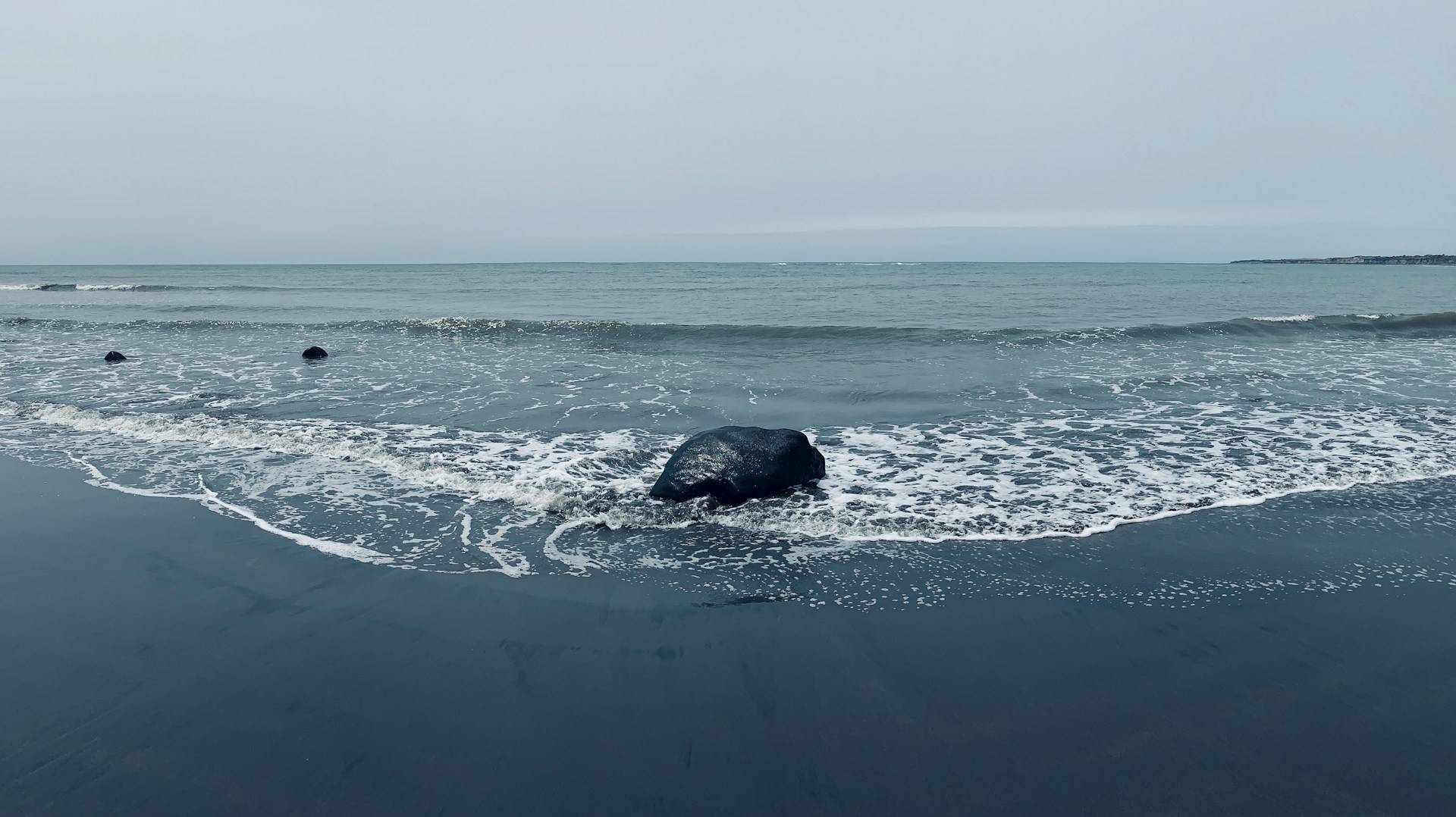Here, immigrants from different professions share how they manage to build a career in a new country. To make the stories complete and detailed, we ask each guest the same set of questions — the very questions people always want to ask those who dared to change their country, language, and often even their field or profession.
 Yuriy Troshin.
Yuriy Troshin.
Background: Yuriy Troshin, 40 years old. Father of three. Holds a degree in Automated Control Systems Engineering. Before moving to New Zealand, he worked as Director of Digital Development at a major transport and logistics holding. He arrived in New Zealand with his entire family in May 2023. Currently, he works as an IT Service Manager at a large public sector company. Certified professional coach, ICF LEVEL 2.
Yuriy’s social media: Facebook, LinkedIn
Where were you located when you started looking for your first job in New Zealand?
Before coming to New Zealand, I was temporarily living in Turkey with my family and tried looking for a job from there. Over the course of four months, I applied for around 100 vacancies. It felt like communicating with a black box — not a single meaningful contact. At best, employers asked where I was located and suggested getting in touch once I arrived in New Zealand.
It became clear that being in the country would be more effective. So Plan B was launched: we flew to New Zealand as a family on a student visa for English language courses. My logic was that this option offered several advantages:
- A good level of English is essential no matter what.
- Being physically in the country while job hunting.
- Less costly than getting an additional professional qualification.
The main downside of this option is that you’re not allowed to work, which means you have to find an employer willing to support a work visa. It’s a risky path, but faith is everything.
Did you obtain any local education?
I didn’t pursue any additional local education. I don’t believe it had any impact on my job search. The key factors were persistence, communication, and mental resilience.
Did you have any local experience? Volunteering, part-time jobs?
I attended English school daily, and job hunting took up a lot of time as well. To earn some income, I also did remote freelance work, which my IT background allows me to do. Living expenses in New Zealand are high, especially when you arrive with your whole family. Balancing part-time work with full-time language study is tough — but possible.
I didn’t work part-time or volunteer — my visa didn’t permit employment in New Zealand, and I simply didn’t have the resources for volunteering.

What roles did you apply for, and how did they align with your previous experience and level of responsibility?
My last role in Russia was as Director of Digital Development at a transport and logistics holding with thousands of employees.
In New Zealand, I mostly applied for three types of roles: Project Manager, Service Manager, and IT Manager. Sometimes, when I felt discouraged, I applied for assistant-level roles. At other times, I swung the other way and tried for executive positions. Neither the assistant-level jobs nor the senior ones attracted much interest in my candidacy.
Only one of my four final-stage interviews was in Auckland — the other three were in smaller towns. I believe competition in Auckland is significantly tougher.
The three roles I prioritized here are about 2–3 steps below my pre-immigration level. These are middle-management roles that, depending on the company’s size and structure, may involve a small team or be individual contributor roles. A project manager, like in Russia, is responsible for a specific project, while a service or IT manager might oversee infrastructure or a support team.
What job search channels did you use, and which ones do you consider most effective?
Here was my strategy:
- I applied to as many jobs as possible. Since I didn’t have a work visa, I needed to tell my story to as many people as possible. Most of my applications were through SEEK, and I was active on LinkedIn.
- I contacted all recruiting agencies I knew of.
- I searched for potential managers in local companies on LinkedIn and sent connection requests with a short introduction.
- I talked about my job search through acquaintances and various social media groups.
- I attended industry conferences and handed out printed resumes to potential employers.
- I visited several companies and left my resume at reception.
- I researched the market, selected the top 10 major New Zealand and international IT companies with local branches, found relevant contacts, and wrote to them directly.
In my case, many of these channels proved useful. For example, I personally met several local IT managers through LinkedIn. I didn’t receive any offers that way, but those conversations helped me understand the local market and management roles better — ultimately improving how I presented myself.
One recruitment agency offered me an interesting vacancy, and I reached the final interview stage. The agency recruiter supported me throughout the process.
One of the job offers I received came from a company that didn’t even have a public vacancy matching my profile — I had written to them myself, identifying them as an interesting employer.

How many jobs did you apply for? How many interviews and offers did you get? How long did it take?
Over the course of 4 months, I applied for about 300 jobs. I went through a couple dozen phone screening interviews. I didn’t keep track of the number of in-person interviews, but I reached the final stage with four companies — and received offers from two of them.
About 70–80% of my applications were for jobs in Auckland, Wellington, and Christchurch. Naturally, most vacancies are concentrated in these major cities. However, only one of my four final interviews was in Auckland. The other three were in small towns. I believe competition in Auckland is much tougher.
I received my first offer two months after arriving. It came from one of the companies I had reached out to directly, regardless of whether they had posted any relevant openings. They offered me a project coordinator role in Auckland. The role was one level below what I had been aiming for, and we weren’t particularly interested in settling in Auckland — my family and I prefer smaller towns. So I declined. Some people said I shouldn’t have turned it down given my situation, but my wife and I believed I could get a better offer.
About a month and a half later, I received a second offer, which I accepted. It was for an IT Service Manager position with a five-person team. The office is located in Rotorua.
After the offer, it took the employer a couple of months to complete the job check process with Immigration New Zealand (INZ). Once approved, I received my work visa in three weeks and started the job shortly after. So, from arrival in New Zealand to my first day of work, the whole process took seven months.
Did the salary at your first job meet your expectations? Did you negotiate it?
The salary was below the median for my position (I used the Hays salary guide for reference). Still, I consider myself very lucky to have landed that first job. Yes, I had to take a couple of steps down the career ladder, but getting into a decent, large company — without local experience or a work visa — and being trusted to manage a team of five was a big win.
By the way, I managed to negotiate a 5% increase from the original offer. After receiving the offer, I paused and then replied, “I really like everything about your offer, but after calculating the expenses — relocation to another city, a large family — I realized it would be barely enough to get by. Is there any chance you could raise the salary a bit?” A few days later, they came back and agreed to a 5% increase, and I accepted the offer.
How is job hunting in New Zealand different from your home country?
In New Zealand, interviews are more relaxed, and corporate dress codes are much more casual. Also, interviews are often conducted by a panel — usually including an HR manager, a direct supervisor, and a team member. Typically, there’s a phone screening first, followed by an interview with the hiring manager’s superior.
So I declined. Some people said I shouldn’t have turned it down given my situation, but my wife and I believed I could get a better offer.
What was your English level during the job search?
Somewhere between B1 and B2. I mainly felt the language barrier when it came to discussing soft skills. For talking about my professional background, my English was sufficient. I do think some potential employers dropped out due to language issues. So — study the language diligently!

Any practical advice for those who are already looking or planning to look for their first job?
Take off your crown. Stop assuming anyone owes you anything or will chase after you. Believe in success and maintain a positive mindset. That’s the key to making it work.
If you need support — I’m happy to help!
P.S. The KE editorial team is looking for new guests for our “First Job in New Zealand” series. If you’re willing to share your career story or recommend someone you know — please contact our editor Yulya at [email protected].



